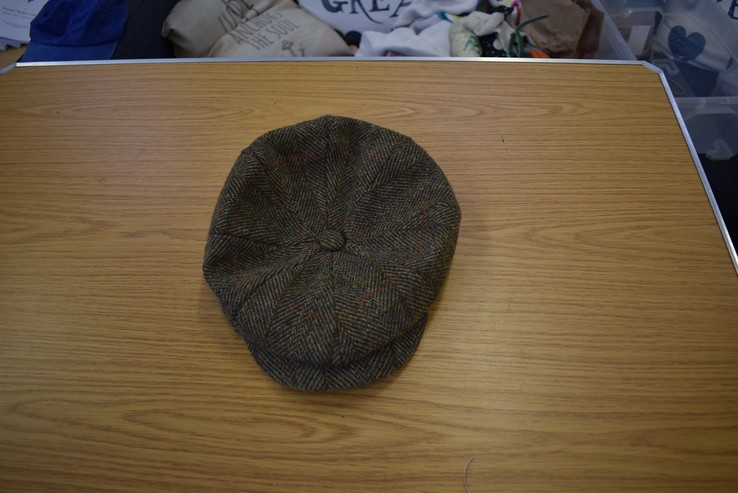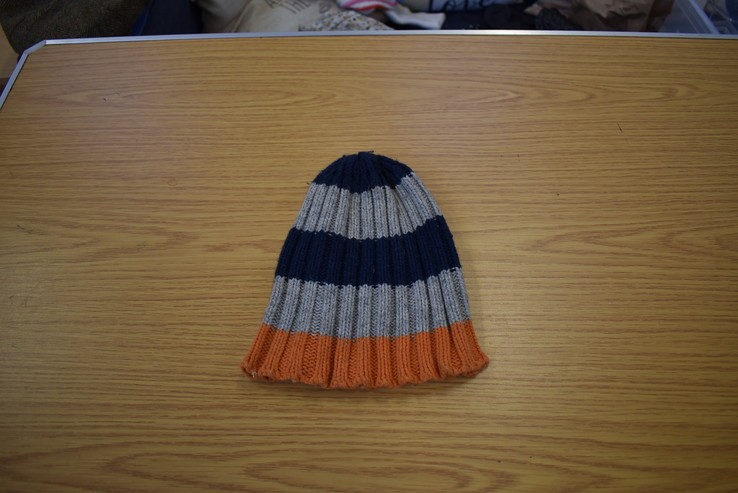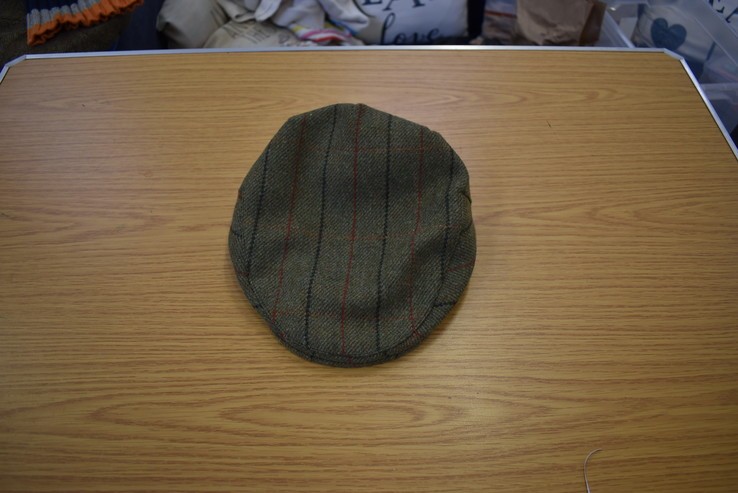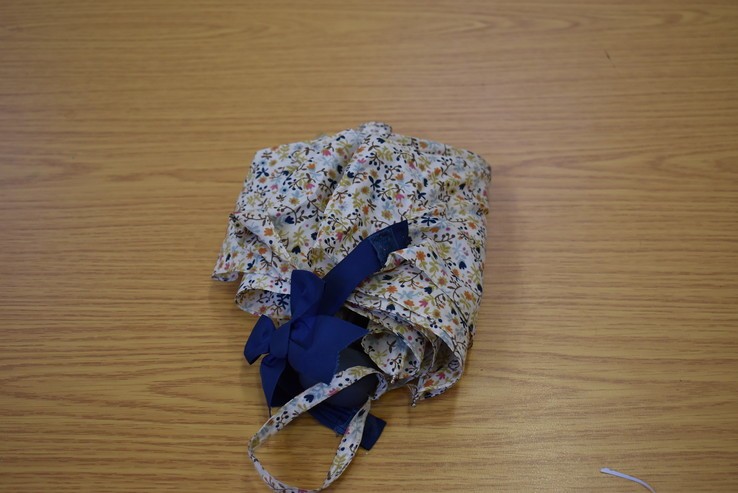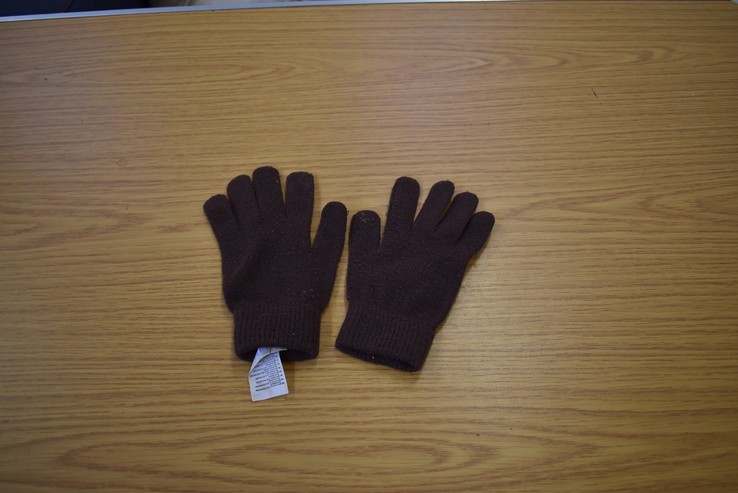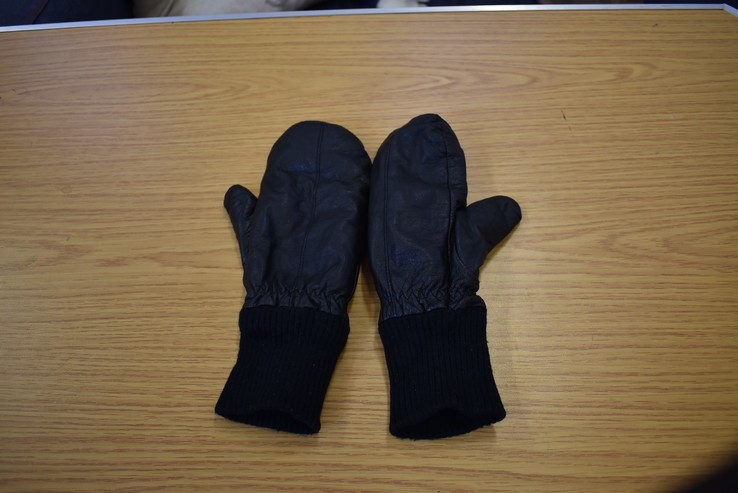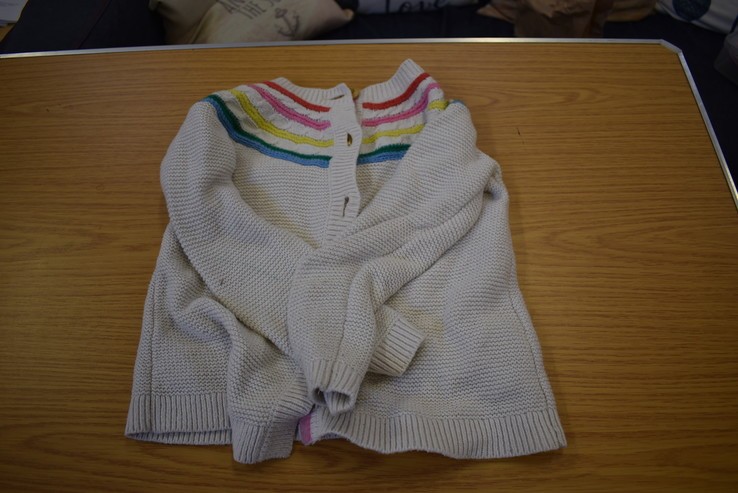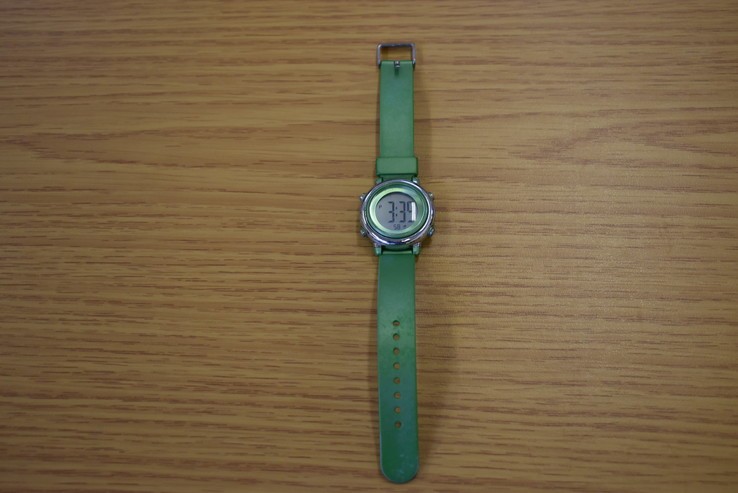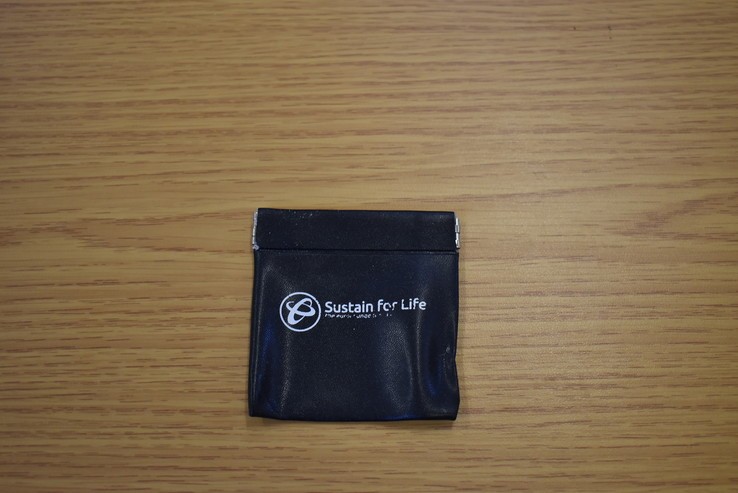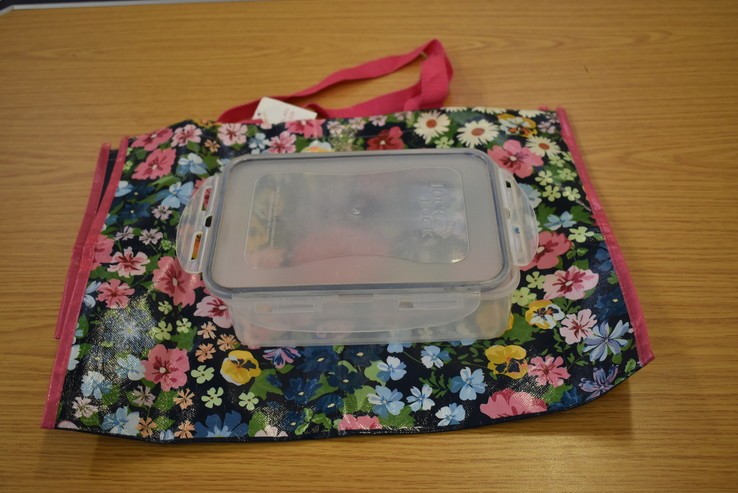Lost at St O
The photos below show all the lost property items that we have acquired at St Osmund’s in recent months. Most of these items have been with us for a while now and so anything not claimed by 10 December will be given away to charity or disposed of. Please contact the Parish Office [email protected] or Outreach [email protected] 01722 562703 to claim an item and arrange to collect it.
Vatican
Pope Leo XIV, in first Roman parish visit, calls for 'disarming' meekness
February 15, 2026 - 5:04pmPope Leo XIV on Sunday made his first visit to a parish in the Diocese of Rome, celebrating Mass at Santa Maria Regina Pacis in Ostia Lido and urging Catholics to cultivate “coherence between faith and life” while opposing violence and injustice with “the disarming strength of meekness” and renewed prayer for peace.
Santa Maria Regina Pacis, located on Rome’s coast and part of the diocese’s southern sector, is the first Roman parish the pope has visited during his pontificate. The pope is expected to visit four additional parishes over the next four Sundays in the diocese’s remaining sectors.
Upon his arrival, Leo was welcomed by Cardinal Vicar Baldassare Reina and Bishop Tarantelli Baccari, vicegerent and auxiliary bishop for the southern sector. Before Mass, the pope greeted children in catechism and young people in a field behind the church, then met with the elderly, the sick, the poor, and Caritas volunteers in the parish gym.
“It is for me a source of great joy,” the pope said in his homily, “to be here and to live with your community the gesture from which Sunday takes its name. It is the Lord’s Day because the risen Jesus comes among us, listens to us and speaks to us, nourishes us and sends us out.”
Reflecting on the day’s readings, Leo said the law God gave his people is not opposed to freedom but is “the condition for making it flourish.” The Lord’s commandments, he added, “are not an oppressive law, but his pedagogy for humanity, which seeks the fullness of life and freedom.”
Jesus’ preaching, he continued, reveals “the authentic and full meaning of God’s law,” pointing to a fidelity to God grounded in respect and care for others “in their inviolable sacredness” — something to be cultivated first “in the heart.” The pope warned that it is in the heart that both “the noblest sentiments” and “the most painful profanations” take root: “closures, envies, jealousies,” by which someone who harbors evil thoughts against a brother is “as if, within, he were already killing him.”
“We must remember,” Leo added, “that the evil we see in the world has its roots precisely there, where the heart becomes cold, hard, and poor in mercy.”
The pope said such realities are felt “also here, in Ostia,” where violence can wound, sometimes taking hold among young people and adolescents, “perhaps fueled by the use of substances,” or through criminal organizations that exploit people and draw them into wrongdoing.
In response, he urged the parish community to continue working “with generosity and courage” to sow “the good seed of the Gospel” in the neighborhood.
“Do not resign yourselves to the culture of abuse and injustice,” the pope said. “On the contrary, spread respect and harmony, beginning by disarming language and then investing energy and resources in education, especially for children and youth.”
Addressing the young in particular, Leo expressed the hope that they would learn in the parish “honesty, welcome, and love that overcomes boundaries,” as well as the ability to help those who do not repay them and to greet those who do not greet them — learning to go toward everyone “freely and gratuitously.”
“Learn coherence between faith and life, as Jesus teaches us,” he said.
In concluding remarks, the pope recalled that Pope Benedict XV gave the church its title, “Saint Mary, Queen of Peace,” during World War I, envisioning the community as “a ray of light in the leaden sky of war.” Today, Leo said, “many clouds still darken the world,” including the spread of ways of thinking contrary to the Gospel that exalt “the supremacy of the strongest,” encourage arrogance, and prize “victory at any cost,” deaf to the cry of those who suffer.
“Let us oppose this drift with the disarming strength of meekness,” the pope said, “continuing to ask for peace, and to welcome it and cultivate its gift with tenacity and humility.”
This story was first published by ACI Stampa, the Italian-language sister service of EWTN News, and has been translated and adapted by EWTN News English.
Pope Leo XIV prays for Madagascar after twin cyclones
February 15, 2026 - 1:07pmPope Leo XIV on Sunday expressed his closeness to the people of Madagascar after two cyclones caused flooding and landslides.
“I pray for the victims, their families, and for all who have suffered serious damage,” the pope said after praying the Angelus in St. Peter’s Square on Feb. 15.
Looking ahead to upcoming Lunar New Year celebrations in East Asia, Leo said: “May this joyful celebration strengthen family ties and friendships, bring peace to homes and society, and provide an opportunity to look to the future together and to build peace and prosperity for all.”
In his reflection before the Marian prayer, the pope focused on the day’s Gospel from the Sermon on the Mount (Mt 5:17-37), saying Jesus “reveals the true meaning of the precepts of the Law of Moses.”
“They are not meant to satisfy an external religious need of feeling ‘righteous’ before God but to bring us into a relationship of love with God and with our brothers and sisters,” he said, adding: “The Law is fulfilled precisely by love, which brings its profound meaning and ultimate purpose to completion.”
Leo emphasized that “true righteousness consists in love,” and he warned against reducing faith to the bare minimum: “The Gospel offers us this valuable teaching: Minimal righteousness is not enough; great love is needed.”
This story was first published by ACI Stampa, the Italian-language sister service of EWTN News. It has been translated and adapted by EWTN News English.
‘It was the best thing I’ve ever done’: Abuse victim details papal meeting
February 15, 2026 - 1:00pmFeb. 2 marked a turning point in the life of David Ryan, a 61-year-old Irishman who suffered sexual abuse as a teenager. More than 40 years later, he was able to share his story face-to-face with Pope Leo XIV in the first private meeting the pontiff has held alone with a victim of abuse.
While the Holy Father had already met with other victims of abuse, those meetings were in groups. The meeting with Ryan was different: For almost an hour, he was able to share everything he thought and still thinks about what happened to him and about the reaction of the Catholic Church in Ireland, which he felt did not listen to him.
“He’s a lovely man, and a lovely experience… Wow. I’m so glad I‘ve done it today, I’m really so glad I’ve done it. I didn’t hold back, I told him about the abuse and asked him, ‘Why are these priests still doing this?’” Ryan told reporters in Rome who were waiting for him outside the Apostolic Palace in the Vatican.
“His sympathy, his empathy toward the survivors, myself and my family, toward my close friends… He felt this, he was sorry, and it was genuine. I knew it was genuine,” he emphasized.
Ryan suffered sexual abuse when he was roughly between the ages of 11 and 17 while attending Blackrock and Willow Park School in Dublin. His brother, Mark, who died at age 62, was also a victim of abuse but never revealed what had happened to him. “It ruined my life. It ruined Mark’s life, and my brother is now gone,” Ryan, who brought a photo of Mark to Rome, told EWTN News.
When Ryan’s story came to light in a documentary titled “Blackrock Boys” on RTÉ radio, it shocked the nation. Following the broadcast, the Irish government commissioned a report that revealed widespread allegations of sexual abuse at hundreds of schools over several decades — a total of 2,400 cases. This was made possible by the courage of Ryan and others like him who shared their stories.
Ryan, who felt he was not being heard by the Church, wrote to Pope Leo XIV and received a reply to meet with him, an appointment he attended with Deirdre Kenny, CEO of One in Four, an Irish charity that advises and supports adults who have suffered sexual abuse.
‘I’m so sorry for you’EWTN Vatican correspondent Colm Flynn spoke with Ryan after his meeting with the pope. He recounted that he told Leo XIV “that I wanted an apology, and the first thing he said to me was, ‘David, all I can say is that I’m so sorry for your pain and hurt, what your family went through, what Mark and the other survivors went through. I can feel your pain, but I don’t know your pain.’ And he looked me straight in the eyes and just said, ‘I’m so sorry for you.’”
“But I could feel a kind of energy coming down when he told me, because I knew he meant it, and it’s like a whole new experience for me. It’s still going down; I still can’t believe I’ve been there. I thought this day would never come,” he emphasized.
‘I just wanted him to hear my voice, my story’After explaining that he wanted to express his anger to the pope and get a response from him, Ryan clarified that with the Holy Father, “I wasn’t going to shout and scream; there was no point in doing that. I just wanted him to hear my voice, I wanted him to hear my story, and he heard. He apologized in a way I wasn’t expecting, and his empathy toward me… it was just quiet and surreal.”
“And I didn’t hold back, I told him I had been raped three times. It’s not pleasant, but many men are afraid to talk about it, and a lot of men don’t cry,” he said. However, he shared that in his case, he managed “to talk about it, I have cried.”
Ryan also said the pope “was shocked to hear how many people had been abused and that the Church had hidden it for so long. I asked him why they did that, and he replied, ‘David, I don’t have an answer yet for you, but I will have an answer when I can.’”
‘It wasn’t your fault’Ryan also told Flynn that he shared his story so that others “would want to come forward and speak out about clerical abuse, because a lot of men don’t talk and keep it quiet.”
“And as I told the pope: It wasn’t my fault. And that took me a long time to admit: It wasn’t my fault. He shook his head and said to me, ‘Yes, it wasn’t your fault, David.’ And that really did hit me. We shook hands afterwards, and I know he understands. It was the best thing I’ve ever done,” he concluded.
This story was first published by ACI Prensa, the Spanish-language sister service of EWTN News. It has been translated and adapted by EWTN News English.
Pope’s visit brings hope to seaside community challenged by drugs, prostitution
February 13, 2026 - 6:12pmPope Leo XIV on Sunday will travel outside the Vatican to visit a Roman parish — the Basilica of Santa Maria Regina Pacis — in the seaside community of Ostia, about 17 miles southwest of the city’s center.
A popular summer destination for tourists, Ostia will be the first of five parishes where the pope, as bishop of Rome, will celebrate Mass on Sundays in February and March.
The pastor of the church, Pallottine Father Giovanni Vincenzo Patanè, told EWTN News the area has its challenges, including drug dealing and prostitution, but there are also many positive initiatives worth highlighting.
“The pope’s presence will help to shed light on these somewhat shady areas, but also to show that Ostia is not only what is often reported about crime and Mafia organizations, but that there is also a lot of good,” the priest said.
According to Father Giulio Albanese, director of the Vicariate of Rome’s social communications office, in Ostia, many people are having trouble making ends meet.
The Church in Ostia is helping to look after those who are struggling, including those in need, immigrants, and young people affected by drugs, he told EWTN News. “The Christian community is there to help them, to share with them the love of God.”
Costantino, a homeless man who declined to give his last name, said he frequents the parish and has been a recipient of its charitable activities. “You must have faith. You can’t lose it ... even in difficult moments,” he said.
The town of Ostia also has an important connection to Pope Leo’s order, the Augustinians, as the site of St. Augustine and his mother, St. Monica’s, shared a mystical experience of eternal life. St. Monica died soon afterward and was buried in Ostia, though her tomb was later moved to Rome.
Pallottine Father Thomas Rzempoluch, assistant pastor of Santa Maria Regina Pacis, explained to EWTN News that the parish was first entrusted to the Augustinian order, which laid its foundation. But when they were unable to finish building the church, the Pallottine Fathers were asked to complete it.
“Our [rector general] at that time sent the Irish Pallottines all over America to take up collections to finish the church. So there’s also an American connection here,” he said.
Leo will be the third pope to visit the parish — Pope John Paul II and Pope Francis also celebrated Mass there during their pontificates.
“The community of Ostia is really so excited, not just our parish,” parishioner Daniele Libertini said.
Pope proposes Lenten ‘fast’ from hurtful words
February 13, 2026 - 2:30pmIn his message for Lent 2026, Pope Leo XIV urges Catholics to listen more closely to God and others — and to “disarm” their language by fasting from words that wound.
The Lenten season begins Feb. 18 with Ash Wednesday.
In the message, released Feb. 13, the pope offers a simple definition of Lent as a time when the Church “invites us to place the mystery of God back in the center of our lives, in order to find renewal in our faith and keep our hearts from being consumed by the anxieties and distractions of daily life.”
He encourages Catholics to allow the word of God to touch their hearts with docility so that Lent may become “a welcome opportunity to heed the voice of the Lord and renew our commitment to following Christ.”
Listening to God and the cry of the poorThe Holy Father first highlights the importance of listening.
“The willingness to listen is the first way we demonstrate our desire to enter into relationship with someone,” he writes.
Listening to sacred Scripture, he says, teaches believers to recognize and respond to suffering in the world.
Quoting his own apostolic exhortation Dilexi Te, he adds that Catholics must recognize that “the condition of the poor is a cry that, throughout human history, constantly challenges our lives, societies, political and economic systems, and, not least, the Church.”
Entering into this interior openness means allowing God to teach us to listen as he does, he writes, so that faith shapes both personal conversion and social responsibility.
Fasting, including from harmful speechTurning to the traditional Lenten practice of fasting, the pope describes abstaining from food as “an ancient ascetic practice that is essential on the path of conversion.”
“Precisely because it involves the body, fasting makes it easier to recognize what we ‘hunger’ for and what we deem necessary for our sustenance,” he writes. It helps believers to “identify and order our ‘appetites,’ keeping our hunger and thirst for justice alive and freeing us from complacency.”
Quoting St. Augustine, he notes that the human heart expands through desire for God. “Understood in this way, fasting not only permits us to govern our desire, purifying it and making it freer, but also to expand it, so that it is directed towards God and doing good.”
However, he stresses that fasting must be lived “in faith and humility” and grounded in communion with the Lord.
In this context, the pope proposes a specific Lenten resolution: “a very practical and frequently unappreciated form of abstinence: that of refraining from words that offend and hurt our neighbor.”
“Let us begin by disarming our language, avoiding harsh words and rash judgment, refraining from slander and speaking ill of those who are not present and cannot defend themselves,” he writes. “Instead, let us strive to measure our words and cultivate kindness and respect in our families, among our friends, at work, on social media, in political debates, in the media and in Christian communities.”
“In this way, words of hatred will give way to words of hope and peace,” he adds.
A shared journey toward conversionFinally, Pope Leo XIV emphasizes the communal dimension of Lent, recalling that Scripture frequently presents fasting and listening to the word of God as shared acts of repentance and renewal.
“Our parishes, families, ecclesial groups, and religious communities are called to undertake a shared journey during Lent,” he writes, where listening to the word of God and to “the cry of the poor and of the earth” becomes part of community life.
He underscores that conversion concerns not only individual conscience but also relationships and dialogue. It means “allowing ourselves to be challenged by reality and recognizing what truly guides our desires — both within our ecclesial communities and as regards humanity’s thirst for justice and reconciliation.”
Concluding, the pope invites the faithful to ask for grace and strength during the penitential season.
“Let us ask for the grace of a Lent that leads us to greater attentiveness to God and to the least among us,” he writes. “Let us ask for the strength that comes from the type of fasting that also extends to our use of language, so that hurtful words may diminish and give way to a greater space for the voice of others.”
“Let us strive to make our communities places where the cry of those who suffer finds welcome, and listening opens paths towards liberation, making us ready and eager to contribute to building a civilization of love.”
This story was first published by ACI Prensa, the Spanish-language sister service of EWTN News. It has been translated and adapted by EWTN News English.



